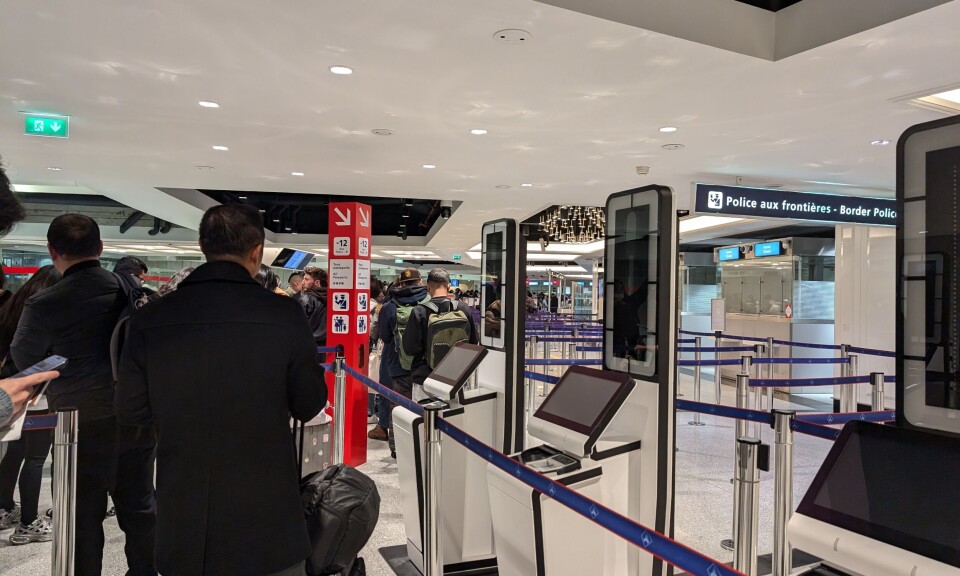-
French tax officials have extra ‘weapons’ to challenge suspicious declarations
Taxpayers may be asked for further evidence or explanations to justify expenses or credit claims
-
BNP Paribas plans large-scale branch closures in France
Around a third of physical branches will close amid ‘changes in the way people bank’
-
AI finds ‘soaring’ cases of fraud in French home renovation applications
More than 40,000 cases were detected in 2024, the housing agency states
Explainer: How to get reimbursed after a bank card fraud in France
It can sometimes be difficult to secure a reimbursement from your bank. We look at what you can do to make a refund more likely

Bank card scams resulted in €1.24billion being stolen from French bank accounts last year, and new schemes designed to trick people into sharing their account details or paying for non-existent products are emerging all the time.
Read more: Bank fraud and other scams on rise in France: What to watch out for
Often, the scammer will pose as an employee of your bank and tell you that they need to run security checks or similar. Once they have obtained your bank details they are able to drain your account of funds.
If you fall victim to a scam of this type, the key is to act quickly but systematically.
First, you should contact your bank to make sure that your account has been accessed and to ask what you can do next. The course of action might vary depending on the type of fraud.
Lion-Joed Char of the Centre européen des consommateurs (CEC France) told consumer group 60 Millions de Consommateurs that: “Some banks will agree to cancel the transaction and to reimburse the sum to the victim.”
However, this will be more likely if the account-holder informs their bank as soon as possible, he said.
You should also report the fraud to the official Perceval platform.
Why might your bank refuse to reimburse you?
If a bank transaction is completely unauthorised and happens without your knowledge, the Code monétaire et financier states that the bank must reimburse you in the working day after it is informed.
For every day after this, it must pay you an additional penalty fee.
However, if it perceives that the fraud was successful due to ‘serious negligence’ on your part, and that the bank did everything in its power to prevent it, it may refuse to repay you.
Article L133-16 of the Monetary and Financial Code states that "the payment service user (bank customer) shall take all reasonable steps to preserve the security of their personal security data”.
This may be the case if you have voluntarily shared your bank details despite signs that you were at risk of being scammed.
For example, if you receive a text message claiming to be from your bank but which comes from a personal number, contains spelling errors and asks for your account number or password in full, it could be seen as ‘negligent’ if you communicated your details.
All is not lost
Even if your bank refuses to reimburse you, there are still ways in which you can try to get your money back.
You might also be able to use your bank’s chargeback service, through which – depending on the terms of your account contract – you can request the cancellation of a bank card operation in the case of proven fraud or of services or goods not received.
You can read more about chargeback (in French) on the France’s government website.
You can also lodge a formal complaint against X for usurping a bank employee’s identity, in that the resulting investigation will help you find the person who scammed you.
Consumer groups may also be able to help.
How to spot a scam in the first place
You should be suspicious of texts, calls or emails which appear to come from an unknown source.
If you receive a message supposedly from a known service provider but it contains spelling mistakes, inconsistencies or requests for information such as your bank details, you should also be very wary.
If in doubt, you can always call the actual organisation to ask whether they really did contact you.
It is also best to avoid clicking links on strange emails or texts.
Do not send any money or share your details with an unknown person, and remember that offers which seem too good to be true often are.
You can find out more about the other scams which have been reported in France in recent months in the articles below:
Warning over bank card scam in French supermarket car parks
Scam alert in France: watch out for fake train ticket payment devices
Crit’Air sticker scams continue in France, online and via SMS
New warning over wood pellet scams in France
Warning over new La Poste ‘failed delivery’ note scam in France
Related articles
Explainer: how shop refunds and returns work in France
French banks to pay fines for late repayment of clients’ fraud losses
‘Speedy’, ‘helpful’: Your feedback on French bank reactions to fraud
























